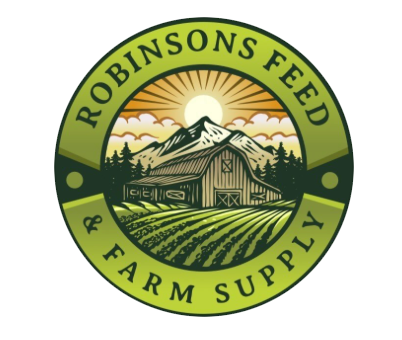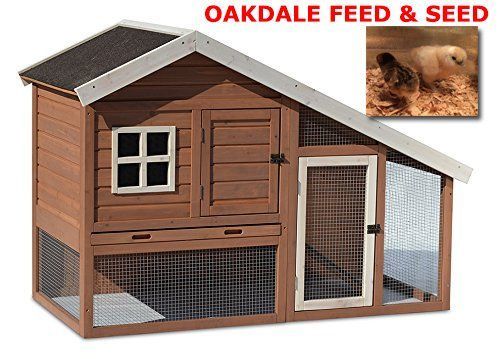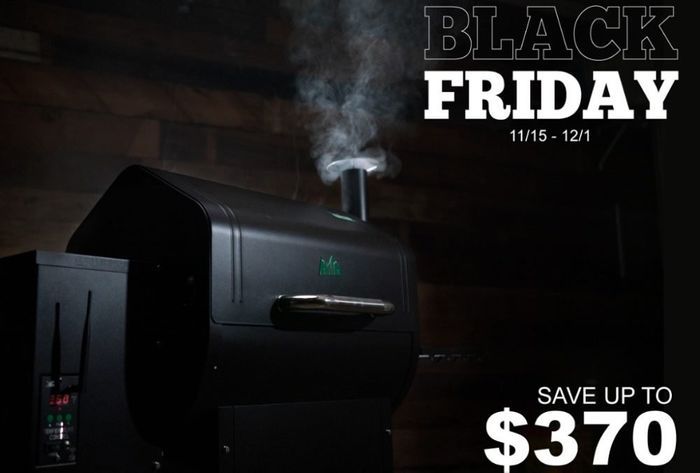
BABY CHICKS AND CHICKEN COOPS FOR SALE
ESSENTIAL CARE ITEMS FOR YOUR BABY CHICKS
You need the correct containers for chick starter mash, grit and water. For housing your chicks you can use a commercial poultry brooder or use a galvanized tub or trough with a screen for the top. You will need this for the first six weeks of your chicks life. Most people use a 250-watt bulb for heating the homemade brooders. Due to the threat of accidental fires it is important to be very careful when using a 250-watt bulb to heat a homemade brooder.
BABY CHICK HOUSING
For the first four weeks provide a draft free container with a screened lid. For maximum comfort, line the box with pine shavings about one inch deep. This should be changed daily or as needed when wet. Warmth is the key to keeping your chicken or duck happy and healthy. Temperatures should be at 90-95 degrees for the first week and lowered by 5 degrees each week until they are six weeks old. The temperature should be controlled by a 250-watt bulb hung over the screened lid at 18 inches above the lid. Chicks will hover near the heat source if they are too cold, and will move away from the heat source if they are too hot. By the time that your chicks are four weeks old they will no longer need the warmth provided by a bulb. They are now ready to roam around outside have access to their safe haven, whether it is a store-bought cage with sleeping quarters, a chicken coop, or some other time of homemade poultry habitat. Keep your chicken in their new sleeping quarters (preferably with a door) at night away from drafts and predators. Your cage can be made out of poultry mesh or wire, but be sure that ½ the cage has a solid floor for protecting their feet (a piece of wood works well).
FEEDING YOUR BABY CHICK
While your young chicks need to be fed chick starter mash, your older chickens can be fed either one type of poultry mix, or a combination of any of Oakdale Feeds chicken pellets, crumbles, mashes or scratch. Oakdale Feed also carries a organic poultry feed that is popular with many of our customers. When bringing home a new chicken they will be stressed from the move and from being handled. They can at this time exhibit signs of dehydration and weakness. To reduce the amount of stress that your new chick is feeling you can dip their beaks gently in water it help them find their water bowl faster. For quick energy, try adding a small amount of sugar to their bowl of water. You can also add vitamins to your chicks water.
VET CARE
Poultry carry diseases that do not affect humans, other than Salmonella. Be sure to wash your hands after handling poultry, and before and after handling eggs, or cleaning their coop. Try to only wear shoes in their coop that you do not wear in your house.
In the event your chicks or chickens become ill or pass unexpectedly you can contact the California Department of Food and Agriculture at 916-900-5002, or visit their website for more information on their free to low cost testing services. They will ask that you overnight the deceased poultry unfrozen on dry ice to them for examination.
Avian Influenza is a very serious threat to both back yard and commercial flocks. Their website provides real time threat updates, and information about possible problems in your area.
Poultry that has not passed on yet, can be dropped off for testing as well with arrangement with the testing facility. UC Davis will provide a humane euthanasia before preforming the narcoscopy.
Phone:
209.368.2716 | Email:
feed@robinsonsfeed.com | Address: 1150 E. Victor Rd. Lodi, CA 95240
Silvas Hay & Grain
Sheldon Feed & Supply
Oakdale Feed & Seed
Robinson's Feed & Farm Supply. All rights reserved.
Privacy Policy | Terms of Use | Accessibility | Site by BroadProximity®


